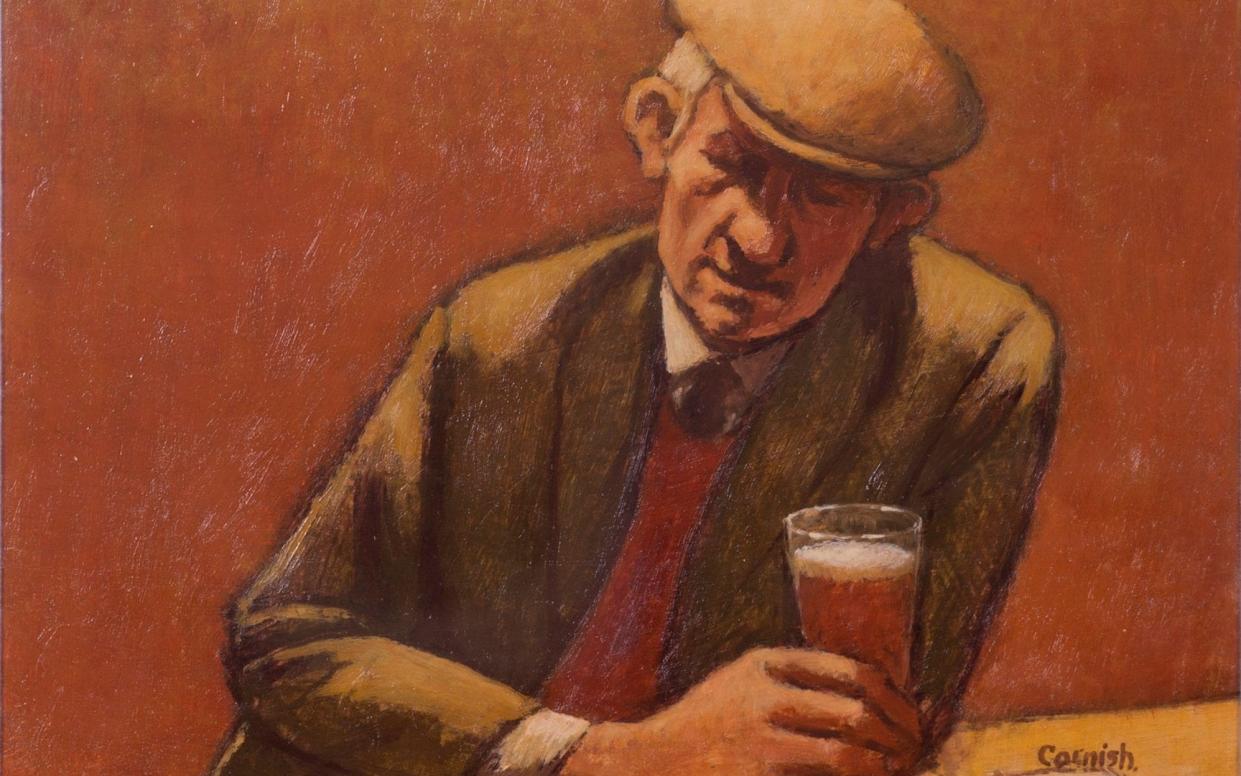Durham miner snubbed by fickle art world was as good as Rembrandt, claims historian ahead of first major exhibition

A Durham miner who was snubbed by the fickle art world was as good as Rembrandt, a historian has said, ahead of his biggest exhibition, put on to celebrate the centenery of his birth.
The work of Norman Cornish is well-known in the North East of England, as he accurately captured the life of a working man in a mining town in County Durham last century.
However, he failed to achieve the global acclaim he deserved, art historians argue, as he spent his formative years down a mine rather than at art school and taught himself how to draw.
Many have said he was the best at capturing the English pub, especially at drawing pints, and now his little-seen sketchbooks will be shown in a University art gallery as part of a nationwide celebration of his work.
Professor Jean Brown, the director of Northumbria University Art Gallery where some of his work will be shown said there was a "real stigma" about his background in the art world, adding that he deserves to be "hung alongside Rembrandt".

She told the BBC Radio 4 Today Programme: "What he achieved as a self taught artist is extraordinary.
"In some ways he's very much underrated as an artist.
"The art market is quite fickle and it needs a lot of reassurance that this is good work.
"There were times when Norman was teaching and students were less than happy that he wasn't from an art school.
"There were artists that he was exhibited alongside that were actually unhappy to be in the same gallery space.
"There was a real stigma."
As well as his famous paintings of the mining communities en masse, he was also a skilled portrait artist, and some of these will be on show in various galleries across the North East, including in Durham.
His son, John Cornish said: "Many people don’t know of my father’s work and they know that his work is usually very informal of the mining communities above and below ground. People in streets, people in pubs, but they don’t realise that he was a highly skilled portrait artist as well. So it’s good to bring it here and show people the different aspect of my father’s work."

Mr Cornish was born in Spennymoor County Durham, and worked as a coal miner from the age of 14 for 33 years before becoming a full-time artist in 1966.
Before his death in 2014, he said he hoped his sketchbooks would “have a life of their own and be of interest to people”.
He wanted to chronicle the lives of the people he grew up and worked with in his town, and famously said: "The local collieries have gone, together with the pit-road. Many of the old streets, chapels and pubs, are no more. Many of the ordinary but fascinating people who frequented these places are gone. However, in my memory, and I hope in my drawings, they live on. I simply close my eyes and they all spring to life."
The artist was awarded an honourary doctorate by Sunderland University in 2012.
Liz Waller, director of library and collections at Durham University, told the BBC: "These treasures, focusing on his observations of life, landscapes and family, offer an intimate insight into his personal thoughts and reflections.
"Norman is an icon of North East life and art. We feel honoured to be part of celebrating the centenary of his birth and privileged to be hosting this very special exhibition."

 Yahoo News
Yahoo News 
